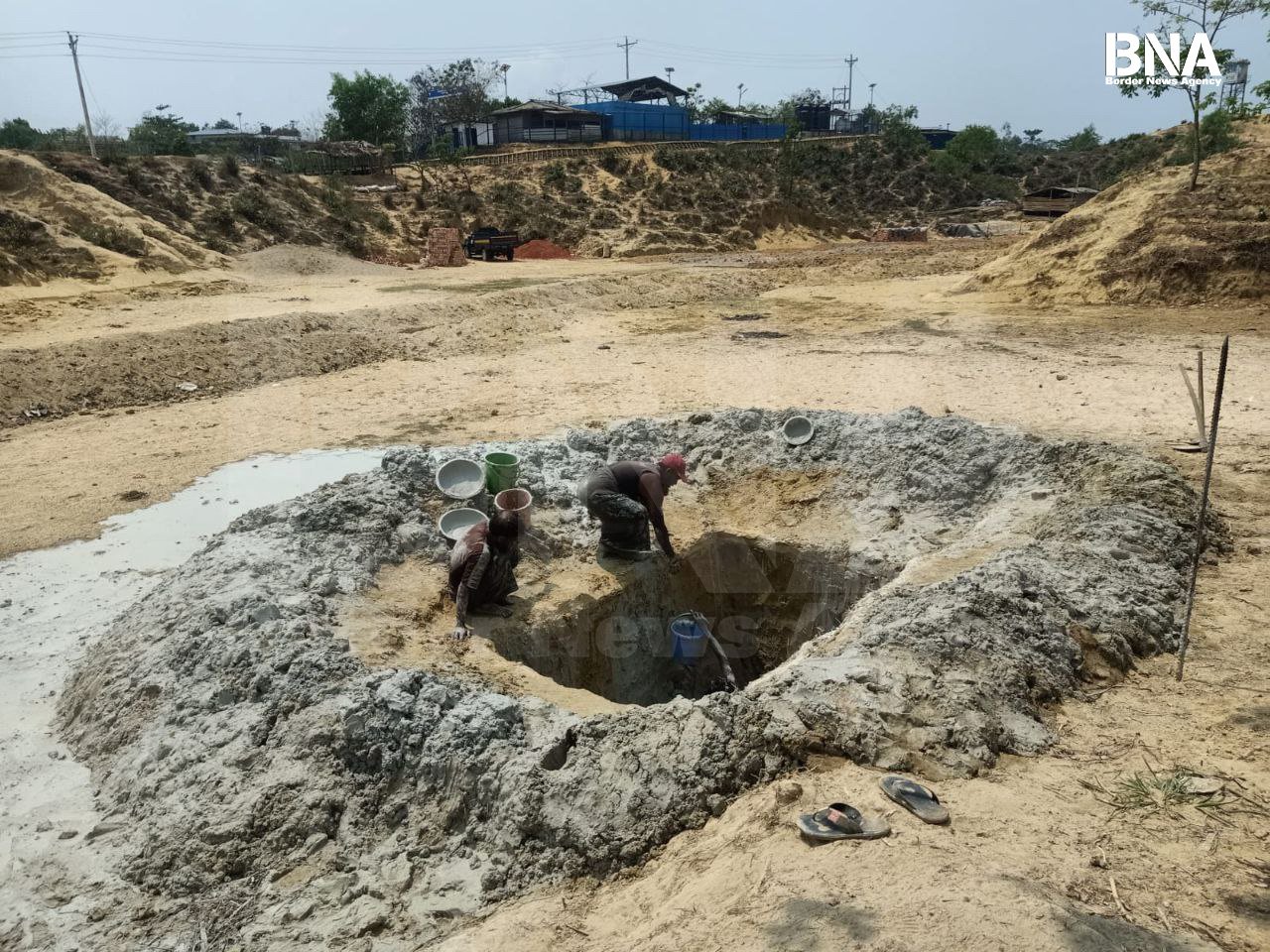As temperatures soar to a sweltering 97°F (36°C) in Teknaf Upazila, Rohingya refugees residing in camps, particularly in Teknaf and Camp 4 Extension, are facing an acute shortage of fresh drinking water. The escalating heat has intensified the daily struggle for water, exacerbating the already dire living conditions.
In Camp 4 Extension’s I Block, home to approximately 130 households, residents report severe hardships due to the lack of potable water. Desperate measures have led them to dig holes in search of water, a testament to the gravity of the situation. This scenario is not isolated, as numerous individuals across the camp echo similar grievances.
A study by the United Nations Development Programme (UNDP) highlighted a drastic decline in groundwater levels around the Rohingya camps, with drops ranging from 5 to 9 meters. This depletion is attributed to excessive reliance on groundwater sources to meet the needs of the burgeoning refugee population. The study further noted that freshwater options are extremely limited, especially in Teknaf, where the bedrock surface lies 25-30 meters below ground, rendering deep tube-wells a costly endeavor for locals.
The ramifications of this water scarcity extend beyond drinking water. Agricultural lands surrounding the camps have become uncultivable due to both faecal contamination and insufficient irrigation water. Specifically, 93 hectares are rendered unusable from contamination, with an additional 380 hectares lying fallow due to irrigation challenges.
Climate change further compounds the crisis. Unpredictable and intense monsoon rains have led to flooding, contaminating water sources and spreading diseases within the camps. The UN Refugee Agency (UNHCR) has implemented measures such as chlorination to combat waterborne diseases and has introduced solar-powered water systems to enhance water supply efficiency.
Efforts to address the water crisis have seen some advancements. In 2021, the Department of Public Health Engineering (DPHE) established a water treatment plant in Nayapara Rohingya camp, Teknaf, providing approximately one million liters of purified water daily to around 15,000 refugees. This initiative harnesses water from rainfall and mountain springs, aiming to alleviate the dependency on dwindling groundwater reserves.
Despite these interventions, the overarching challenge persists. The convergence of a rapidly depleting water table, environmental degradation, and the adverse effects of climate change underscores the urgent need for sustainable water management solutions. Collaborative efforts between governmental bodies, international organizations, and local communities are imperative to ensure that the Rohingya refugees have consistent access to safe and sufficient water, especially during the intensifying heat of the hot season.
Note: The current weather forecast for Teknaf indicates continued high temperatures, with highs ranging from 94°F to 97°F (34°C to 36°C) over the next week, further emphasizing the urgency of addressing the water crisis in the refugee camps.






